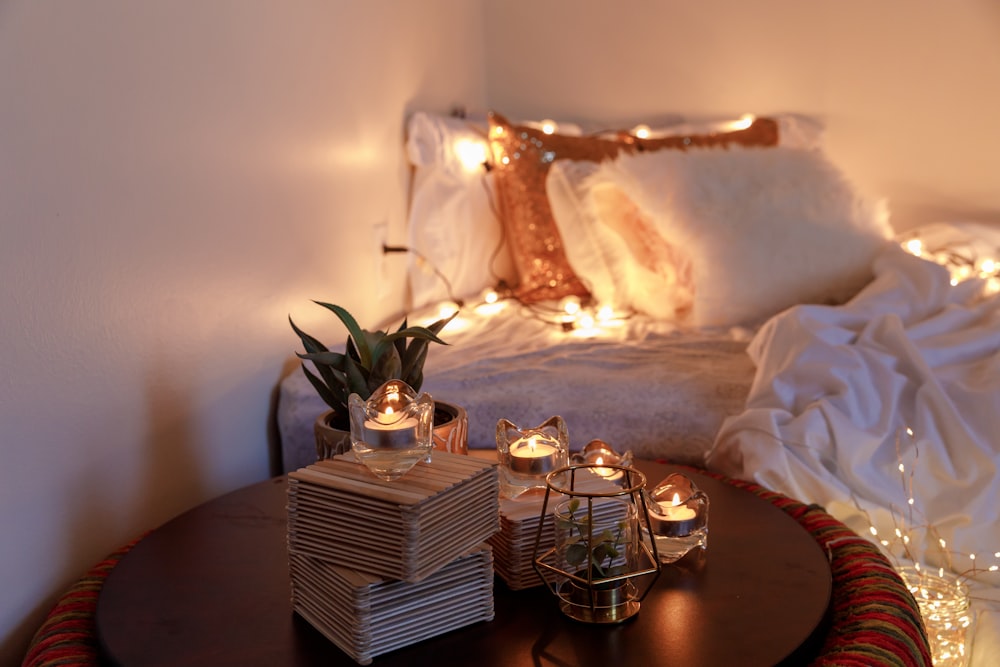
Have you been wondering how to fix your sleep schedule? Perhaps it’s because you haven’t been sleeping well, you’ve been going to sleep too late, waking up too early, or waking up too late. It’s crucial for your health that you keep your circadian rhythm and sleep hygiene in check, and learning how to fix your sleep schedule is the first step.
Getting enough sleep is pertinent to your health, but it doesn’t stop there. It’s also important that you have a healthy sleep schedule. Even if you’re self-employed, you still likely don’t want to be nocturnal (sleeping all day and then staying up all night).
It’s one thing to be a night owl, but what if you let it get so bad that you can’t fall asleep until morning, and then you end up sleeping in until the afternoon? What if you have a relationship, job, activity or hobby that requires you to wake up early? The first thing we’ll discuss is whether or not night owls can become early birds.
Can Night Owls Become Early Birds?
If you’ve always been a night owl, it could be due to your genetics, not just your lifestyle.
People who have a late chronotype are genetically prone to staying up late. For these individuals, it feels natural to stay up until 2:00 or 3:00 in the morning.
Nightowls and creative types may find that their brain comes alive at night, making them more productive near midnight.
There isn’t any issue with staying up late if you feel more productive at night and you feel rested the next morning. However, you may need to learn how to fix your sleep schedule if you start a nine to five job or find that your responsibilities require you to be awake in the morning.
If you want to find out how to go to bed earlier and wake up earlier, below are some helpful tips:
Create a sleep schedule and try to stick to it
Are you trying to fix your sleep schedule, or do you need to create and abide by a sleep schedule?
If you always sleep at irregular hours, never really going to bed at the same time, your body may not know when bedtime should be. Try creating a sleep schedule so your body clock recognises when it is time to sleep.
Don’t nap during the day
Are you a serial nap taker? If so, that could be a cause of your irregular sleep schedule. Taking long naps during the day can make you feel groggy in the day and more alert at night.
You can learn how to fix your sleep schedule while still taking naps if you stick to power naps that are not longer than 30 minutes. It is also recommended to nap before 3pm to ensure your sleep will not be disrupted.
Reduce screen time before bed

When you expose yourself to light from screens, your brain stops producing melatonin, a sleep hormone that helps you sleep. This occurs when you expose yourself to artificial light, natural sunlight, and light emitted from electronic devices.
This means that darkness will help your brain to produce more melatonin to make you feel sleepy. You can prepare yourself for sleep by dimming or switching off your lights and avoiding screens. Read or journal by candlelight before bed, instead of watching TV or using your phone right up until bedtime.
In the morning, you can also make yourself feel more awake by exposing yourself to bright lights when you wake up.
What is Circadian Rhythm and Why is it Important?
We’ve mentioned circadian rhythm at the beginning of this article and you might have heard of it before. But what exactly is a circadian rhythm?
During your 24-hour day, your body clock alternates between sleep and wakefulness, and this sleep-wake cycle is your circadian rhythm.
The circadian rhythm is what makes you feel sleepy and signals to your body that it’s time for bed. You can therefore see why it is an essential tool to help you fix your sleep schedule.
Your circadian rhythm is affected by a multitude of factors including light exposure, activity, and hormones.
A person’s circadian rhythm can also be thrown off by doing shift work, pulling all-nighters, having jet lag, and travelling across different time zones.
What Affects Your Quality of Sleep?

There are many factors that affect your sleep, including but not limited to:
- Stress
- Trauma
- Medical conditions
- Chronic pain
- Diet
- Medication
- Environment
- Drugs
- Alcohol
- Snoring
- Sleep disorders
- Health
- Physical activity
- Sleep hygiene
We know it may seem like there are so many things that can negatively impact your quality of sleep, but there are many ways to improve your sleep, too.
One of the main ways to fix your sleep schedule is to improve your sleep hygiene.
What is Sleep Hygiene?
Sleep hygiene is basically a person’s checklist of lifestyle and diet habits that improve their quality of sleep. These habits can include not drinking alcohol before bedtime and maintaining a regular sleep schedule.
Sleeping problems such as insomnia can be caused by poor sleep hygiene that has been reinforced over the years.
You can improve your sleep hygiene by creating an environment and daily routine that help you have consistent deep sleep. Not only does sleep hygiene affect your sleep, but it can also have a significant impact on your overall health.
Below are some specific tips to help you improve your sleep hygiene and sleep well:
Take time to relax before bedtime
Your cortisol levels increase when you are stressed or anxious, which in turn makes you feel more awake. Unwinding before bedtime can calm your mind and body to help you sleep better.
Try to avoid overly stimulating activities such as watching television and strenuous exercise an hour before bedtime.
You can also try stretching, meditating, doing yoga, taking deep breaths, or journalling before sleep. Anything that puts your body in a relaxed state is great.
Get comfortable

Now that your brain is ready for bed, it’s time to prep your body. Make sure your bed is conducive for sleep by using supportive mattresses and pillows.
Don’t forget to change your sheets regularly as that will keep your bed feeling clean and fresh.
Remove or drown out loud noises from your environment
Noise from your external environment can make your brain start active and alert when you’re trying to doze off. Your brain is always processing sounds, creating a quiet environment will help you fix your sleep schedule.
You can remove loud noises from your room by placing your television out of your room and switching off your phone or turning on the ‘do not disturb’ mode.
If your apartment building or street is noisy and you can’t avoid noise, drowning out the distracting noise with white noise or sleep music may help.
There are many apps that create white noise, but that might expose you to unnecessary screens at night. Instead, you can use a fan, air conditioner, humidifier, air purifier, or a white noise machine. Those who prefer sleeping in silence can also simply buy a pair of comfortable wax earplugs.
Regulate the temperature in your bedroom
Most people sleep better in cooler climates. This study from the National Institutes of Health shows that room temperature is one of the key factors for quality sleep.
Temperatures between 15 to 19°FC, or 60 to 67°F, will keep you cool and comfortable. However, temperatures below 12°C, or 54°F, and above 24°C, or 75°F, can disturb your sleep.
Have dinner earlier
If you usually have late dinners or eat a full meal right before bed, you may want to reconsider. Eating late might keep you up at night because your body needs time to digest the food.
It can also be difficult to sleep well if you consume caffeine, alcohol, or heavy meals that are high in fats before bed.
However, don’t eat dinner too early, as some people may find it difficult to sleep when they’re hungry.
Exercise daily

Your body is linked to your biological clock, which means your muscles will align with your circadian rhythm. Exercising can also increase melatonin production and improve your sleep quality.
Experts recommend exercising at a moderate pace for 30 minutes, at least five times per week.
Consider a melatonin supplement
As aforementioned, melatonin is the hormone that helps regulate your sleep cycle.
When you have insufficient melatonin, you may find it difficult to fall asleep. To combat insomnia or even jet lag, some people use store-bought melatonin supplements to help them sleep.
This is only recommended for serious cases because melatonin can cause side effects such as drowsiness, headaches, nausea, and dizziness. You should always check with a health professional before taking new supplements and ensure you are taking the right dosage. Generally speaking, melatonin is quite safe, and much safer than prescription sleeping pills.
How to Fix Your Sleep Schedule: Do You Need to See a Doctor?
In most cases, you can fix your sleep schedule by following the tips in this article and maintaining good sleep hygiene.
However, if you’ve been suffering from insomnia for a prolonged period of time and can’t find a way to fix it, you may want to consult a healthcare professional.
In Conclusion
You can dive deeper into exploring your sleep habits by taking a CircleDNA test as it includes a plethora of health reports, including stress and sleep reports that explain how your genetics may be affecting your sleep hygiene. You’ll learn your genetic risk for certain sleep disorders, your likelihood to fall asleep faster or easier depending on your DNA, and you’ll even learn whether you’re genetically more likely to be a night owl or morning lark. Find out more about CircleDNA here.







This Post Has 3 Comments
Comments are closed.